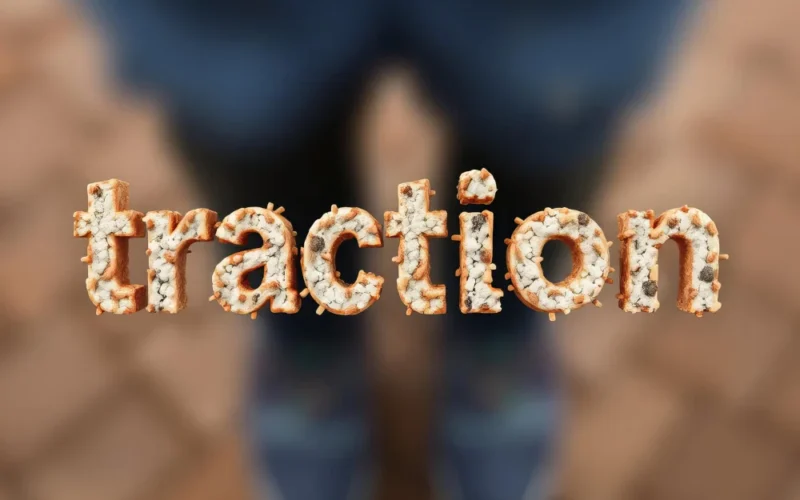The term drudgery often evokes a sense of boring and repetitive tasks, but in the context of word puzzles, such as “Drudgery 7 Little Words,” it becomes an opportunity for creative problem-solving. In this article, we’ll dive deep into what drudgery means, how it fits into the puzzle world, and explore the hidden positives of monotonous tasks. Whether you’re stuck on a specific clue or simply interested in learning more, this guide will provide you with everything you need to know.
What Is Drudgery?
Drudgery refers to repetitive and tiresome work that requires effort but offers little immediate reward. Think of the tedious tasks in life, like washing dishes or folding laundry. These activities require time, energy, and persistence, often leaving us with a feeling of monotony. However, despite its negative connotations, drudgery helps us develop resilience and discipline—qualities that come in handy in both everyday life and in word puzzles.
The Origins of the Word ‘Drudgery’
The word “drudgery” originates from Middle English and is thought to have developed from the term “drudge,” which describes someone engaged in difficult, tedious work. Historically, the word has been used to reflect back-breaking labor with minimal recognition or reward. Understanding its origins gives us insight into how this concept has evolved and is now cleverly utilized in puzzle games like Drudgery 7 Little Words.
Drudgery in Everyday Life
In our day-to-day lives, drudgery can often feel like an unwelcome visitor. Activities such as data entry, doing taxes, or even commuting to work are forms of drudgery that many of us face. However, these mundane tasks also form the backbone of a functioning society, providing us with structure and a sense of accomplishment. By reframing drudgery in a positive light, we can better appreciate its hidden benefits.
Drudgery in Word Puzzles
When it comes to Drudgery 7 Little Words, the concept takes on an exciting twist. In the world of word puzzles, drudgery becomes a challenge that prompts critical thinking and creativity. Instead of seeing it as a tiresome burden, it becomes a clue—something to solve, conquer, and enjoy.
This word puzzle presents players with letter tiles and clues that they must solve by finding words that fit the description. “Drudgery” often appears as a clue, prompting players to think of words related to tedious, repetitive work. This challenge tests your vocabulary skills and encourages you to dig deeper into synonyms and meanings, turning something dull into a fun and rewarding experience.
How to Solve Drudgery 7 Little Words (Basic and Advanced Tips)
Solving the Drudgery 7 Little Words clue may seem straightforward, but there are a few strategies you can use to improve your success:
- Analyze the Clue: Understand the context of the clue. Words like “drudgery” imply hard, repetitive labor, so think of synonyms like “toil,” “grind,” or “labor.”
- Use the Letters: Rearrange the given letter tiles to see if any words begin to form. Practice recognizing familiar letter patterns.
- Break It Down: If you’re stuck, break down the meaning of “drudgery.” It usually relates to boring, exhaustive work. Consider terms that fit that description.
- Look for Synonyms: Words like “menial” or “grind” can often solve clues related to drudgery. Think about words with similar meanings that match the letter count.
- Take a Break: Sometimes stepping away from the puzzle for a few minutes can help you come back with a fresh perspective.
Using these methods can help you become more proficient at solving clues like drudgery in Drudgery 7 Little Words and improve your overall puzzle-solving skills.
Cultural Perspectives on Drudgery
The perception of drudgery differs across cultures. In some societies, repetitive work is viewed as an integral part of personal growth and self-discipline. For example, in Japanese culture, mastering repetitive skills—like those required in martial arts or tea ceremonies—is seen as a way to reach perfection. In contrast, Western cultures often prioritize efficiency and innovation, seeing drudgery as something to eliminate or outsource. Understanding these differences can help us appreciate the unique values attached to repetitive work.
The Positive Side of Drudgery
Though often viewed negatively, drudgery can have hidden benefits. Repetitive tasks provide structure and stability, which can be incredibly grounding. Think about the satisfaction of completing a to-do list or the routine of daily exercise—drudgery, in these cases, helps us build discipline and resilience.
The same applies to puzzles. While solving the Drudgery 7 Little Words clue may seem tedious, the sense of achievement that comes with figuring it out is rewarding. By embracing drudgery, we develop a mental toughness that serves us well in life’s bigger challenges.
How Word Puzzles Combat Monotony
Word puzzles like Drudgery 7 Little Words provide an effective way to combat the monotony of everyday drudgery. Instead of viewing mundane tasks as something to escape, these puzzles allow us to approach them with curiosity. Engaging with challenging word puzzles provides a mental workout, enhancing cognitive skills like memory, pattern recognition, and critical thinking. This not only relieves stress but also transforms the concept of drudgery into a productive activity.
Gamification of Monotonous Tasks
One of the best lessons we can learn from Drudgery 7 Little Words is the idea of gamification. By turning something mundane into a game, we can make even the most boring tasks more engaging. Imagine using the principles of word puzzles to tackle chores: setting goals, rewarding yourself, or even making it a competition can help make drudgery feel less tedious and more like a challenge to overcome.
Comparing Drudgery 7 Little Words to Similar Games
If you enjoy Drudgery 7 Little Words, there are other word puzzle games you might also like. Games such as Crosswords, Wordscapes, and Scrabble offer similar challenges that require critical thinking and a robust vocabulary. While Drudgery 7 Little Words is unique in its format of assembling words from letter tiles, these other games provide a variety of challenges that also help enhance language skills. Comparing these games can provide a broader appreciation of how puzzles can transform drudgery into a fun experience.
How Drudgery Shapes Personal Growth
Despite its negative connotations, drudgery plays a significant role in shaping personal growth. Completing mundane tasks teaches patience, persistence, and the importance of seeing things through to the end. In the context of Drudgery 7 Little Words, solving challenging clues builds these very skills, providing players with a sense of accomplishment and the ability to think creatively under pressure.
Whether it’s solving word puzzles or tackling household chores, embracing drudgery as a part of the process can foster a growth mindset. Instead of viewing these tasks as obstacles, we can see them as stepping stones toward self-improvement.
Conclusion
Drudgery 7 Little Words is more than just a word puzzle—it’s an exploration of language and meaning. By transforming something mundane into a challenge, it encourages players to think critically and embrace the positives hidden within repetitive work. Understanding drudgery as more than just a boring task helps us appreciate the small victories that come from perseverance and creativity.
Whether you’re tackling a household chore or solving a word puzzle, remember that there is value in every task, no matter how mundane it may seem. The next time you encounter drudgery as a clue in 7 Little Words, take it as an opportunity to engage, think critically, and celebrate the joy of unraveling the complexities of language. Through patience, creativity, and persistence, even the most repetitive challenges can lead to rewarding discoveries.

